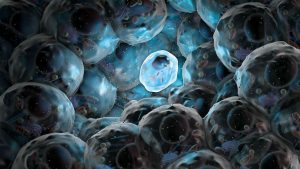 A team of scientists from the University of California, Los Angeles has been able to synthesize an artificial thymus, a human organ that is important to the body’s immune system. An artificial thymus, they say, could produce necessary cancer-fighting T-cells for the body.
A team of scientists from the University of California, Los Angeles has been able to synthesize an artificial thymus, a human organ that is important to the body’s immune system. An artificial thymus, they say, could produce necessary cancer-fighting T-cells for the body.
On demand.
T-cells, of course, are white blood cells which naturally fight diseases that develop in or infect the body. These T-cells are artificial, though, so they would have to be engineered to target specific forms of cancer, in order to be effective. Still, if this is manageable, then it could provide scientists and health practitioners with additional natural defenses—albeit, bionic—for attacking disease.
For the study, the Japanese researchers looked at 27 patients who had received transplants form stem cells that had been taken from their own thigh muscles. These patients showed no sign of any major complications; most patients also showed significant improvement with their symptoms.
Research team member Gay Crooks comments, “We know that the key to creating a consistent and safe supply of cancer-fighting T-cells would be to control the process in a way that deactivates all T-cell receptors in the transplanted cells, except for the cancer-fighting receptors.”
It is important, of course, to take stem cells from the patient who needs them because the body is likely to reject any foreign stem cells (and their byproducts).
Apparently, they have been at this study for more than two decades but, unfortunately, the researchers acknowledge that past attempts only showed modest results. From these results, though, they were able to devise a method for producing sheets of muscle stem cells which could then be attached to the inner layer of the sac (which encloses the heart). These stem cells will stimulate healing through the production of chemicals which encourage cardiac regeneration, though the stem cells, themselves, do not survive in the long term.
The results of this study have been published in the scientific journal Nature Methods.
